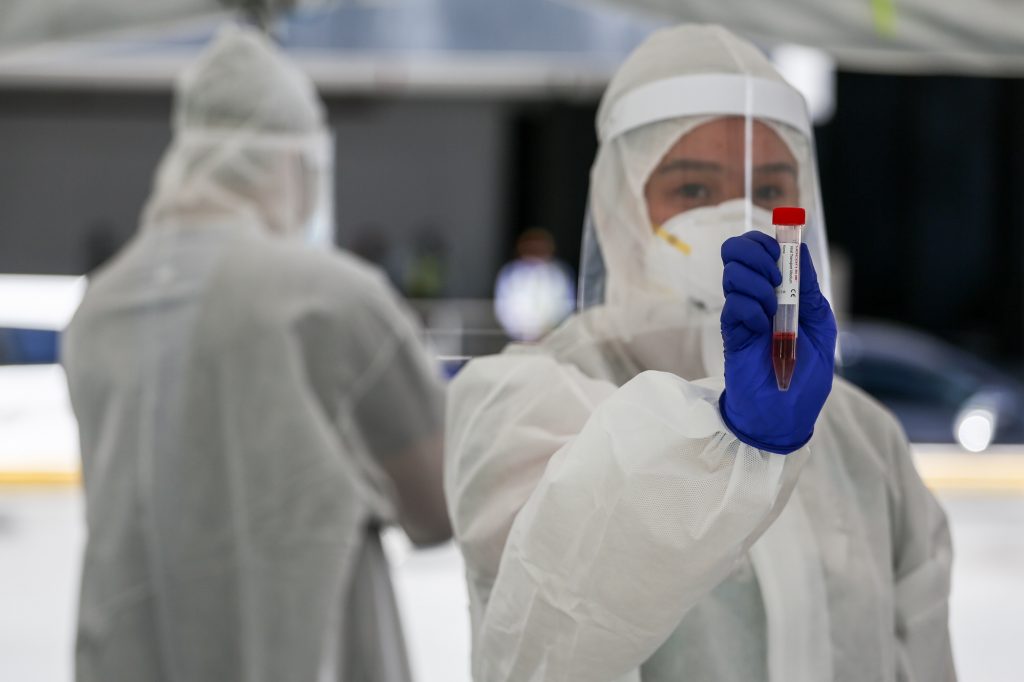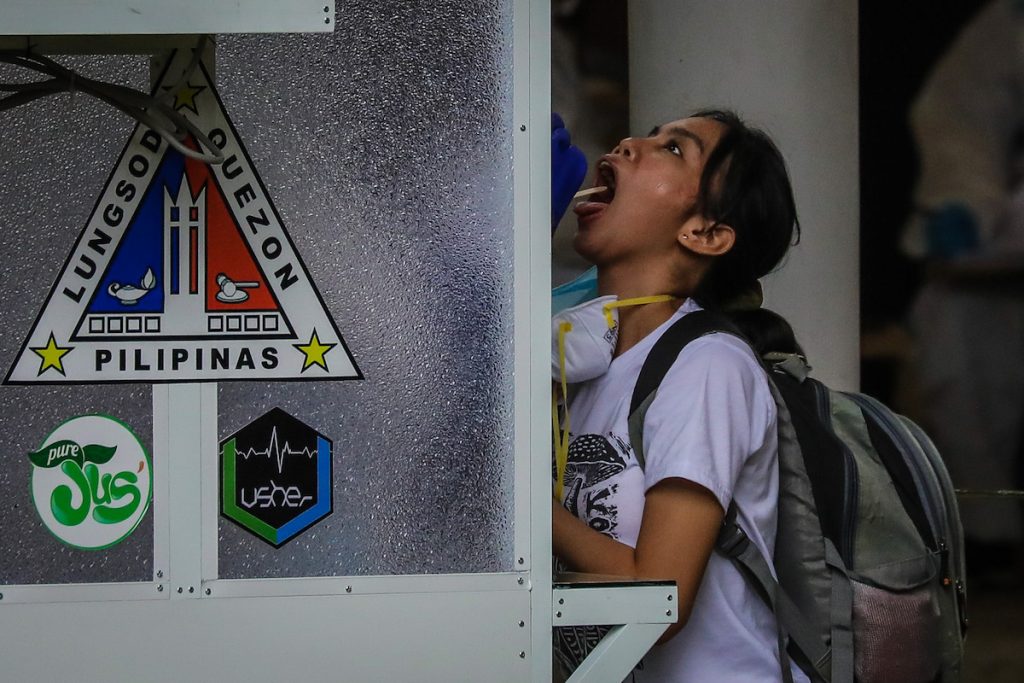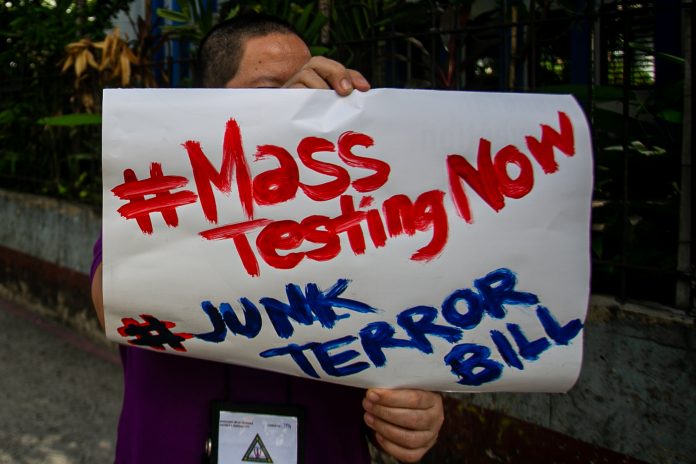Activists asked the Philippine Supreme Court on Friday, July 3, to compel the government to provide “proactive and efficient mass testing” of the new coronavirus disease.
They also called for a “timely release of transparent, accurate and complete epidemiological data” on the spread of the disease in the country.
The activists cited the Philippine Constitution and country commitments to international treaties and agreements as basis for their petition.
“The right to life is the most important and most fundamental of all human rights,” said the petitioners led by former Social Welfare Secretary Judy Taguiwalo.
The petition was filed a day after the Philippines’ COVID-19 infection rate hit 38,805 and about 100 train workers in the capital tested positive of the disease.
The petitioners said the government should ensure that COVID-19 testing is free, accessible, and available to all suspect cases, all contacts of probable and confirmed cases, frontline healthcare workers, and high-risk and vulnerable communities.
It also called for the abolition the Department of Health’s “complicated, multitiered prioritization scheme for testing.”
They also asked the court to direct the government to ramp up contact tracing and rapid containment, improve laboratory testing capacity, and create additional testing laboratories.
The petition stressed the need for “accurate, timely, and complete information on the country’s COVID-19 situation.”

Mass testing for workers
The country’s largest labor organization also called on the government to provide free and inclusive coronavirus testing and treatment for workers.
Elmer Labog, chairperson of the Kilusang Mayo Uno, said the government should place comprehensive mechanisms for mass testing, contact tracing, and treatment for all workers.
He said these services must be provided to workers “who must be considered as indispensable,” especially during a health crisis and the looming economic meltdown.
“The private sector and the Philippine government must fulfill its responsibility to ensure and protect the health of the workers,” he said.
Labog, however, said the government must not pass its primary responsibility on public health to companies and business establishments.
“We will welcome it if the private sector wants to help. But this must not absolve the government of its mandated responsibilities to the people during the pandemic,” he said.
Labog noted that mass testing must be conducted in workplaces such as export processing zones, factory belts, and business process outsourcing companies “to ensure workers’ safety and livelihood.”
“Wherever the workers gather to labor, there must be mass testing,” he said.
Labog agreed that the country must jumpstart economic recovery “but it must not come at the expense of workers’ lives, health, and safety.”

‘Bayanihan’
President Rodrigo Duterte has earlier signed a law, the “Bayanihan to Heal as One Act,” which allocated funds to contain the spread of the disease.
The petitioners said the government’s “COVID-19 Expanded Testing” prioritizes targets according to severity of symptoms, even among health workers.
The multi-level prioritization leaves many suspect and probable cases, whether patient or healthcare workers, untested and untreated, said the petitioners.
Persons who are possible carriers of the disease are left to tend on their own, free to roam around, and spread the virus.
“The government’s failure to conduct mass testing … is dangerous and deadly as it could mean that the coronavirus will not be detected in thousands, if not hundreds of thousands, of Filipinos,” said the petitioners.
Duterte initially promised that the government would shoulder all testing and treatment costs of affected citizens.
But the government’s health agency placed a cap at the end of April on what the state would pay, leaving many patients paying for the tests themselves.
Duterte defended the changes in policy. “We don’t have money anymore,” he said on June 15.
Petitioners said the new law allocated US$64 million to “expedite and streamline accreditation of testing kits and facilitate prompt testing by public and designated private institutions.”
The country also received a US$3-million Asian Development Bank grant to help manage the COVID-19 outbreak with the purchase emergency medical supplies and setting up of a new laboratory.
A series of loans from the World Bank valued at US$100 million were also earmarked for facilities and services, including testing.









